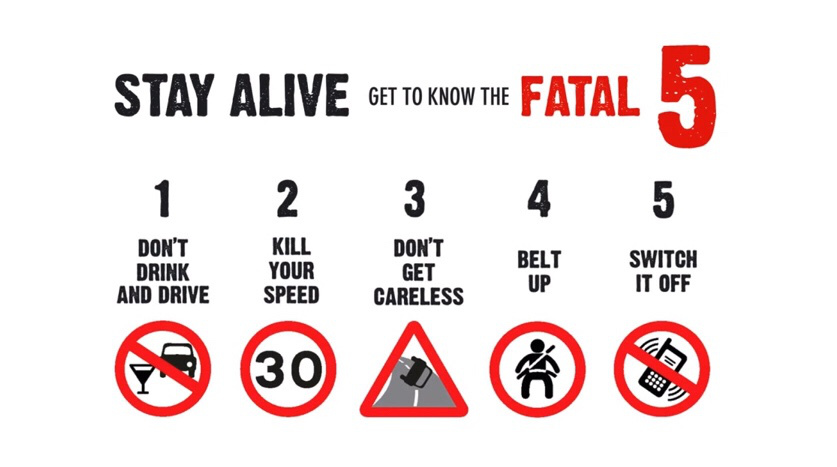There is a dirty little secret about vaccines that people don’t seem to like to talk about.
No, it’s not about toxins or autism.
“Our systematic review did not reveal any convincing evidence on effective interventions to address parental vaccine hesitancy and refusal. We found a large number of studies that evaluated interventions for increasing immunization coverage rates such as the use of reminder/recall systems, parent, community-wide, and provider-based education and incentives as well as the effect of government and school immunization policies.
However, very few intervention studies measured outcomes linked to vaccine refusal such as vaccination rates in refusing parents, intent to vaccinate, or change in attitudes toward vaccines.
Most of the studies included in the analysis were observational studies that were either under-powered or provided indirect evidence.”
Sadaf et al on A systematic review of interventions for reducing parental vaccine refusal and vaccine hesitancy
It’s that we don’t really know how to talk about vaccines to vaccine hesitant parents, at least not in a way that we know will consistently get them to vaccinate and protect their kids.
Understanding Studies About Vaccine HesitancySure, a lot of studies have been done about talking to vaccine hesitant parents.
We have all seen the headlines:
- Study: You Can’t Change an Anti-Vaxxer’s Mind
- Pro-vaccine messages can boost belief in MMR myths, study shows
- UWA study shows attacking alternative medicines is not the answer to get parents to vaccinate kids
- Training Doctors To Talk About Vaccines Fails To Sway Parents
Does that mean that you shouldn’t try to talk to vaccine hesitant parents?
Of course not.
“How providers initiate and pursue vaccine recommendations is associated with parental vaccine acceptance.”
Opel et al on The Architecture of Provider-Parent Vaccine Discussions at Health Supervision Visits
Just understand that these headlines are usually about small studies, which if they were about treating a child with asthma or strep throat, likely wouldn’t change how you do things.
 Why do people continue to believe misinformation about fake recommendations to stop breastfeeding?
Why do people continue to believe misinformation about fake recommendations to stop breastfeeding?
In one study that concluded that “physician-targeted communication intervention did not reduce maternal vaccine hesitancy or improve physician self-efficacy,” the physicians got a total of 45 minutes of training!
So they shouldn’t have so much influence about how you might talk to parents about vaccines that you throw up your hands at the thought of talking to a vaccine hesitant parent and won’t even think about learning how to use the CASE method, why presumptive language might work, or about vaccination-focused motivational interviewing techniques.
The bottom line is that no matter what the headlines say, we just haven’t found the best way to talk to vaccine-hesitant parents and help them overcome their cognitive biases. And until more studies are done, none of the existing studies about anti-vaccine myth-busting should likely overly influence how you do things.
“Physicians should aim for both parental satisfaction and a positive decision to vaccinate. Researchers must continue to develop conceptually clear, evidence-informed, and practically implementable approaches to parental vaccine hesitancy, and agencies need to commit to supporting the evidence base. Billions of dollars fund the research and development of vaccines to ensure their efficacy and safety. There needs to be a proportional commitment to the “R&D” of vaccine acceptance because vaccines are only effective if people willingly take them up.”
Leask et al on Physician Communication With Vaccine-Hesitant Parents: The Start, Not the End, of the Story
If you spend any time talking to vaccine hesitant parents, especially those who are on the fence, you quickly learn that many are eager to get good information about vaccines and all want to do what is best for their kids.
It’s just hard for many of them to do what is best when their decisions are getting influenced by vaccine scare videos and many of the 100s of myths about vaccines that are out there.
“…while the drivers of vaccine hesitancy are well documented, effective intervention strategies for addressing the issue are sorely lacking. Here, we argue that this may be because existing strategies have been guided more by intuition than by insights from psychology and by the erroneous assumption that humans act rationally.”
Rossen et al on Going with the Grain of Cognition: Applying Insights from Psychology to Build Support for Childhood Vaccination
So while we need more studies on the best ways to talk to vaccine hesitant parents, don’t dismiss all of the ways that might be effective, such as:
- Using vaccination-focused motivational interviewing techniques.
- Highlighting the benefits of vaccines, including all of the social benefits.
- Using presumptive language and high-quality recommendations when you talk about vaccines.
- Trying the CASE Method for talking about vaccine concerns.
- Helping parents who may have a skewed perception of the risks of vaccines vs risks of vaccine preventable diseases, by emphasizing that vaccines are very safe.
- Not minimizing or dismissing a parent’s concerns about vaccines without providing a fact based explanation for why they shouldn’t be worried.
- Avoiding a “data dump,” in which you might overwhelm a vaccine hesitant parent with too much information all at once and in what they might see as a lecture about accepting vaccines.
- Including stories and anecdotes about kids who have gotten sick and parents who regret not vaccinating their kids.
It is also important to become familiar with the myths and anti-vaccine talking points that may be scaring your patients away from getting vaccinated on time.
Why is this important?
If a parent is concerned about glyphosate, you might not sound too convincing telling them not to worry if you don’t even know what glyphosate is.
What to Know About Vaccine Hesitancy StudiesWhile we learn better ways to talk about vaccines, so that vaccine-hesitant parents can more easily understand that vaccines are safe and necessary, don’t dismiss current strategies because of small studies and attention grabbing headlines.
More on Vaccine Hesitancy Studies- Study – A systematic review of interventions for reducing parental vaccine refusal and vaccine hesitancy
- Study – Going with the Grain of Cognition: Applying Insights from Psychology to Build Support for Childhood Vaccination
- Study – Physician Communication With Vaccine-Hesitant Parents: The Start, Not the End, of the Story
- Study – Strategies for addressing vaccine hesitancy – A systematic review
- Improving communication about vaccination – “SARAH”
- The SKAI project: Sharing Knowledge About Immunisation
- Study – Communicating with parents about vaccination: a framework for health professionals
- Talking to Your Vaccine-Hesitant Loved Ones with Compassion and Confidence
- Working with vaccine-hesitant parents
- Study – Effective Messages in Vaccine Promotion: A Randomized Trial
- Introduction to Vaccination-Focused Motivational Interviewing
- Video – Vaccine Conversations that Work for Providers and Parents
- AAP – Vaccine Hesitant Parents
- Study – Responding to parental refusals of immunization of children.
- CDC – Provider Resources for Vaccine Conversations with Parents
- AAP – The Architecture of Provider-Parent Vaccine Discussions at Health Supervision Visits
- AAP – Responding to Parental Refusals of Immunization of Children
- How to Motivate Patients to Immunize
- Motivational Techniques and Skills for Health and Mental Health Coaching/Counseling
- Challenging Cases: Vaccine Hesitancy
- Working with vaccine-hesitant parents
- Providers Are Most Persuasive On Vaccinations When Speaking with Confidence and Conviction
- Addressing Vaccine Hesitancy and Resistance
- Making the CASE for Vaccines: Communicating about Vaccine Safety
- Communicating Effectively About Vaccines
- A positive approach to parents with concerns about vaccination for the family physician
- Vaccine Communication With Parents: Best Practices
- Dealing with vaccine hesitancy and refusal
- How should we deal with vaccine hesitancy, refusal, and antivaccine beliefs
- Learning the Hard Way: My Journey from #AntiVaxx to Science
- Antivax 101: Tactics and Tropes of the Antivaccine Movement
- Battling misinformed consent: How should we respond to the anti-vaccine
- Does society try to shame and shun vaccine refusers and the vaccine-averse?
- Pediatricians Who Refuse Families Who Don’t Immunize
- Study – Physician Communication Training and Parental Vaccine Hesitancy: A Randomized Trial.
Share this:
- Vaccine Education





